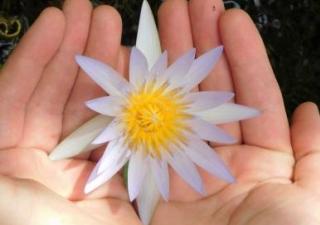For some of us, the idea of looking in the mirror with open-heartedness and love then saying to our reflection, “Hey, I think you’re fantastic; I genuinely appreciate and like you,” makes us squirm uncomfortably.
Fear Often Negates Self-Appreciation
A primary fear arises from comparing ourselves to others. We strive to do our best, trying to achieve perfection. Yet at the same time we forget that we are human, and by nature, imperfect. We are conditioned by a desire to please others by doing well and fear reprimands for poor performance. Our grades were established by comparison to other students, our wages and promotions are determined by comparisons to our peers, and sometimes the love we receive from our families arises from comparison to our siblings.
Change Your Mindset to Embrace Self-Appreciation
Self-appreciation does not imply vanity or narcissism. These two traits arise when you flaunt your “daily best” to others and expect praise and accolades in return.
How do we embrace our positive qualities in a healthy way? First, we need to acknowledge that all people have strengths and weaknesses. Then, when we enjoy what’s good about ourselves, we embrace and celebrate our goodness without evoking feelings of arrogance or pretentiousness. We treat ourselves with mindfulness, kindness, and a sense of common humanity when considering our perceived flaws.
Mindfulness and Self-Appreciation
This isn’t to say we ought to ignore valid areas of growth. Rather, we mindfully choose to balance our perspective so that we continue to grow as well as appreciate what we do well. Every human being has both positive and negative traits. Instead of mindlessly creating exaggerated storylines about either good or bad, intentionally practice honoring and accepting ourselves authentically. No better and no worse. The key is having balance and perspective so that we can see ourselves without distortion.
Common Humanity and Self-Appreciation
Our gifts and talents arise from a combination of personal mindset and intention, our ancestry, the nurturing and support of our parents, the generosity of friends, the guidance of mentors, and the wisdom of our social community. Appreciation for our good qualities, then, is really an expression of gratitude for everyone who’s influenced us as we move through life. Self-appreciation quietly honors all those people and life experiences who have molded us into the person we are today.
Lao Tzu, the founder of Taoism, once wrote, “Because one believes in oneself, one doesn’t try to convince others. Because one is content with oneself, one doesn’t need others’ approval. Because one accepts oneself, the whole world accepts him or her.” Cultivating mindfulness, kindness, and a sense of common humanity allows self-appreciation to blossom. As self-appreciation blossoms, we begin living the wisdom of this beautiful quote daily.
Learn more about self-appreciation by enrolling in the BodyMind IntelliSense program, joining a Cultivating Mindful Compassion course, or picking up a copy of my Amazon bestseller Cultivating Compassion: Simple Everyday Practices for Discovering Peace of Mind and Resilience.







